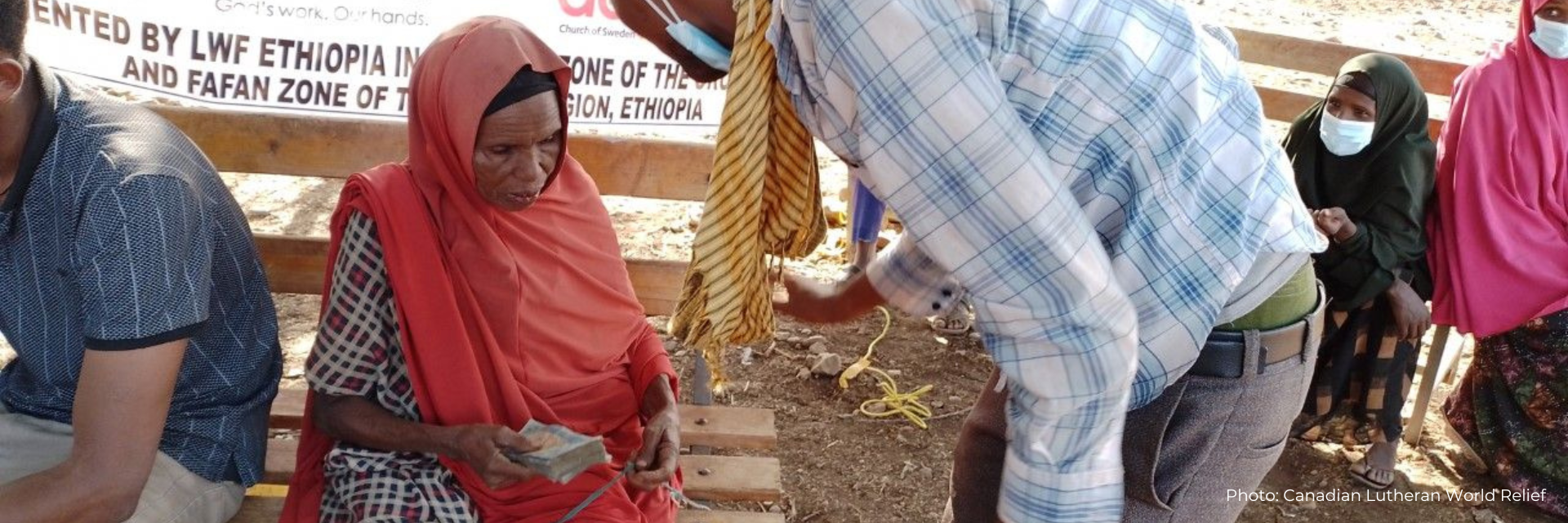
Help to survive the deadly drought
When the rains failed, Teyiba Saliya Terre was in trouble.
The 72-year-old widow, who lives in the Oromia Region of central Ethiopia, didn't know what she would do. When pastoralists in her village--people who, like her, make a living by looking after animals--began to leave in search of food, water and pasture for their animals, a leg injury forced her to stay behind.
"When the drought started because of the failed rains, my supply of food began to quickly diminish," she said. "My cattle lost weight due to the scarcity of pasture in the area. This is around the time when people started to migrate in search of water and pasture. However, because of my health problems, I couldn't move away and decided to remain at home."
Unable to walk without help, Teyiba counted on her son and his wife for assistance. They came each morning to take her outside for some sun, and then made her some breakfast before going off to work.
Then she received life-saving assistance from Canadian Lutheran World Relief (CLWR), with support from the Humanitarian Coalition. The aid came in the form of cash, made available to vulnerable people who were most affected by the drought.
Through LWF, Teyiba received 9,000 Birr (about $227 CAD). "I was very excited when I was informed about being selected as one of the many recipients of the cash distribution," she said. "I thanked Allah. It would have been very difficult for me to survive and recover from the impact of the drought which has affected my cattle and my crops."
With the money she received from LWF, Teyiba bought pasta, rice, sugar and oil--food that fed her for a month.
Teyiba is one of more than 15 million people in Somalia, Kenya and Ethiopia who are suffering from severe food insecurity as a result of drought. Governments in those countries are doing what they can to help, but it is insufficient. Help from groups like LWF are critical to help people get through this difficult time.